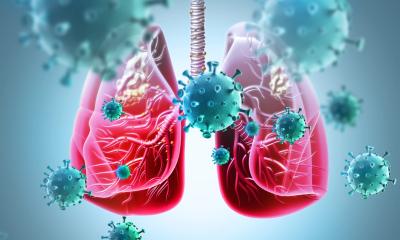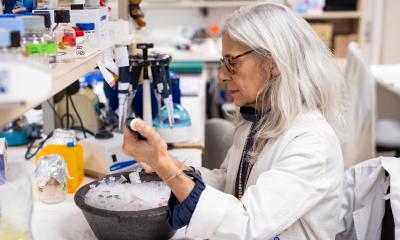News • Team sports research
Coronavirus and soccer: study investigates transmission risk
A study by the Universities of Basel and Saarland shows that there is almost no risk of transmission of the Covid-19 virus on the field. They suggest that blanket quarantine measures for opposing teams are not justified if no close contact has taken place off the playing field.

Image source: Unsplash/Lars Bo Nielsen
Governments have introduced various measures over the past 18 months in an effort to curb transmission of the Covid-19 virus. This includes limited training opportunities for team sports such as football. But to date it has been difficult to quantify the actual risk of infection during training or matches. Now, a research group at the Institute of Sports and Preventive Medicine at Saarland University, led by Dr. Florian Egger and Professor Tim Meyer in collaboration with exercise scientist Dr. Oliver Faude from the University of Basel, has looked into precisely this issue. Funding for the study came from the German Football Association.
The researchers published their findings in the British Journal of Sports Medicine.
The research team collected details on almost 1,300 suspected cases of coronavirus infection from professional leagues, amateur football and youth clubs between August 2020 and March 2021. From this, they identified 104 situations in which it was highly likely that an infectious player had taken part in a training session or game. Using contact tracing and detailed video analysis of a total of 21 games, the researchers then evaluated potentially relevant transmission channels. The video analysis showed that contacts relevant to infection are rare in football matches and generally of very short duration. In two of the 104 cases examined, the research group could not completely rule out transmission on the field. However, in both these cases other potential channels of transmission were possible, including private meetings, unmasked bus journeys and contacts at work.
The researchers conclude that outdoor sports activities with minimal physical contact pose a very low risk of infection and are therefore a safe option for sport and exercise during the pandemic. They therefore suggest that hygiene measures and directives from the health authorities should be restricted to situations off the field with no blanket quarantine measures for opposing teams if no close contact has taken place off the field. But before these findings are incorporated into policy decision processes, it is important to note that the data was gathered before the Delta variant had become the dominant variant of the virus. Moreover, only professional leagues conducted regular PCR testing of the entire team up to two weeks after the positive test of a player. Clubs in the amateur and youth sector followed the recommendations of the respective authorities for PCR tests with a policy of 14-day monitoring of symptoms. This means that asymptomatic cases may not have been recorded.
Source: University of Basel
02.11.2021











